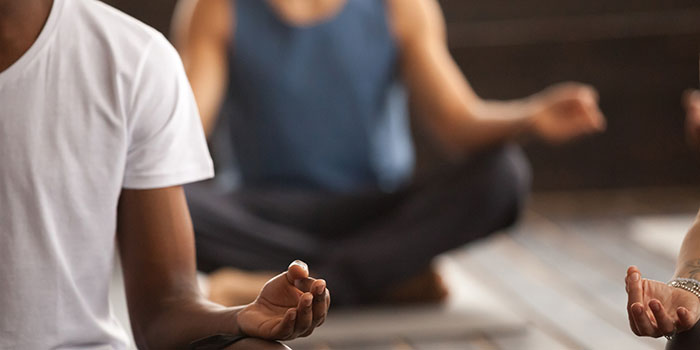
🧘♀️ If You Feel Like It’s Not Working, That Doesn’t Mean There’s No Hope: A Meditation Journey to Self-Acceptance and Mindfulness 🧘♂️
Starting a journey towards improved mental and physical well-being is a significant challenge. Whether your journey includes therapy, yoga, exercise, or meditation, it’s natural to encounter moments of uncertainty — times when you sense that nothing is effective. However, if you’ve ever caught yourself thinking, “This simply isn’t my thing,” particularly when engaging in something as intricate as meditation, it’s vital to understand: that doesn’t signify a lack of hope.
In reality, many individuals experience profound frustration and self-criticism when they find meditation challenging. But here’s the reality: meditation isn’t an inherent talent. It’s a skill — and like all skills, it requires time, practice, and self-reflection to nurture.
Let’s delve into why meditation might not initially resonate with you and why that’s entirely acceptable.
🌱 Starting the Journey: It’s Not Always Instant Serenity
Numerous people tackle meditation with the expectation of immediate tranquility and clarity. Yet the practice frequently begins with anything but serenity — feelings of restlessness, intrusive thoughts, and intense emotions are common. This challenge is not yours alone; indeed, the initial obstacles are a normal part of the process.
The truth is, meditation isn’t solely about achieving a blank mind right away. Often, it’s about simply recognizing that your mind is busy — and refraining from judging yourself for it.
“If you want to conquer the anxiety of life, live in the moment, live in the breath.”
– Amit Ray
A crucial element to overcoming this challenge is fostering openness — particularly towards the ideals of self-acceptance and mindfulness. You don’t have to feign inner tranquility when you’re not feeling it. Rather, embrace your current state exactly as it is. That is mindfulness in motion.
💡 The Impact of Childhood and Self-Image
For many, subconscious beliefs formed during childhood or shaped by community norms can hinder self-compassion. If you were raised in settings that discouraged vulnerability or regarded practices like meditation as unusual, your internal resistance is not a personal shortcoming — it’s a learned response. And like any learned response, it can be unlearned.
Recognizing these entrenched beliefs can help break down obstacles to meditation. Genuine healing often starts with exploring the origins of your resistance.
🔬 Exploring Various Meditation Techniques
Contrary to widespread belief, meditation doesn’t have to involve sitting cross-legged in silence. Countless techniques exist, and just because one approach doesn’t resonate doesn’t imply meditation isn’t “for you.”
Some styles to consider:
✔️ Guided Meditations: Ideal for newcomers, where a guide leads you through breathing and visualization.
✔️ Sound Healing Meditations: Utilizes vibrations and sounds to influence brainwave patterns and soothe the mind.
✔️ Visualization Exercises: Direct your mind to tranquil locations or mentally envision positive outcomes.
✔️ Body Scans: Direct your focus progressively from one body part to the next, enhancing physical consciousness.
✔️ Environmental Listening: Pay attention to your surroundings without judgment or reaction.
✔️ Breathing Techniques: Count your inhales and exhales or practice breathing through alternating nostrils.
✔️ Meditative Music: Allow calming melodies to ground you.
✔️ Breath Synchronization: Breathe in rhythm with soothing music or binaural beats.
The aim isn’t perfection, but presence. Even counting your breaths can provide a meditative experience — and for many, this minor anchor in the present can prove unexpectedly transformative.
⏳ It’s a Practice, Not a Performance
Like any skill — whether it’s riding a bike or mastering a musical instrument — meditation isn’t about being “good” but engaging in regular practice. Initially, it may seem like your mind won’t quiet down. That’s perfectly normal. It’s the act of sitting with those thoughts, returning to your breath repeatedly, that truly matters.
“Feelings come and go like clouds in a windy sky. Conscious breathing is my anchor.”
– Thich Nhat Hanh
With dedication and time, what once felt awkward can evolve into second nature. And the rewards — enhanced calmness, concentration, self-awareness, and emotional control — render this journey meaningful.
🪞 Self-Compassion Is the True Essence of Meditation
The most vital takeaway from all this? Show kindness to yourself. You aren’t flawed because a particular method didn’t resonate. You’re not lagging behind because you haven’t managed to silence your thoughts. You’re human — and you’re evolving, regardless of how it appears externally.
Meditation isn’t exclusive to monks in secluded monasteries. It is accessible to anyone ready to pause, breathe, and connect with themselves exactly as they are.
✨ Final Thoughts
Meditation can be challenging. Some days, it may not seem effective. But in those